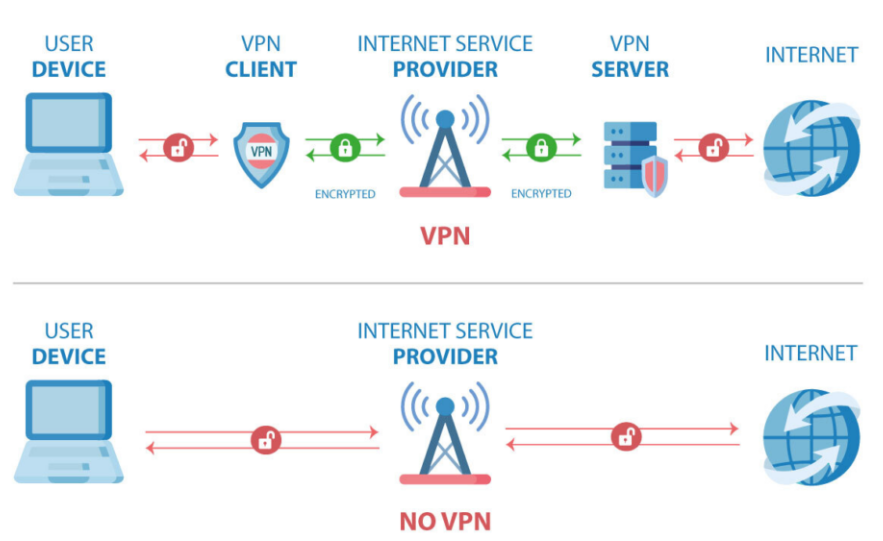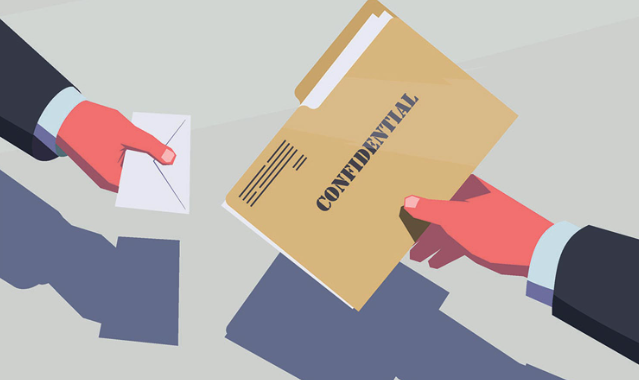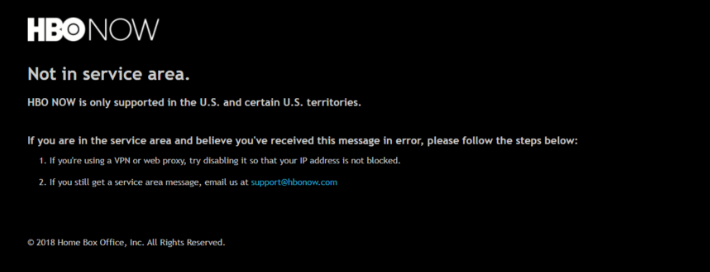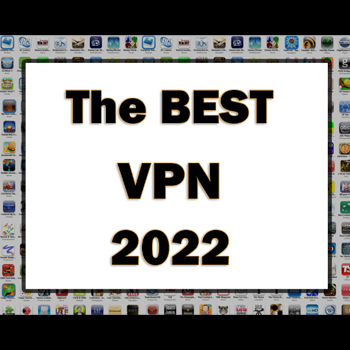Last Updated on December 9, 2023 by VPNPioneer
A VPN, which stands for virtual private network, is like a secret shield for your internet activity. It hides who you are when you’re online and makes sure your actions are private. VPNs give you more privacy, let you visit websites from other countries, and help keep your sensitive info safe.
People and businesses use VPNs for different reasons, and there are many choices out there. We’ve looked at the important features to help you pick the best VPN for you. Here are our favorite ones in 2024.
 |  |  |
| Learn More | Learn More | Learn More |
| $2.99 / month | $6.29 / month | $2.03 / month |
| 50 Countries | 105 Countries | 91 Countries |
| 5,000 Servers | 7,500 Servers | 6,000 Servers |
| AES-256 Encryption | AES-256 Encryption | AES-256 Encryption |
| 6 Devices | Unlimited Devices | Unlimited Devices |
What’s a VPN?
A VPN, or virtual private network, is like a secret guard for your online stuff. It encrypts your data and hides what you’re doing from prying eyes. Whether you’re checking emails, chatting with friends, or browsing websites, a VPN can help keep you anonymous.
What Does a VPN Do?
When you do things online, your computer connects to a server that holds the website or service you’re using. Usually, the website can see some info about you and your device, which might not be great if you want your activity private.

A VPN connects you to a faraway server before linking you to your favorite sites. So, when a website checks for your info, it only sees the VPN, not you.
How VPNs Protect Your Privacy & How They Don’t
You can use a VPN on your personal and work devices to keep your data and browsing habits private. The encrypted data is like a secret code, making it almost impossible for hackers and sites to figure it out.
But, there are things a VPN can’t shield you from:
- Malware
- Phishing scams
- Data on your devices
A VPN guards the data you send and get online, but it can’t do much for the data living on your phone or computer. For that, you’d need antivirus and anti-malware software. Also, be careful about the links you click in emails and online. Tricky phishing attacks can look like messages from someone you know.
How to Pick the Best VPN
When deciding on the best VPN, there are a few important things to think about. It’s good to find a balance between cost, useful privacy features, server locations, and a user-friendly experience. Considering these factors will help you choose a VPN that gives you the security and privacy you need.
Keep an eye out for these details:
Must-Have VPN Features
- Security and Encryption: A good VPN should have strong security, like AES-256 encryption, to keep your online data safe from hackers and other bad actors.
- Privacy Policy: The VPN’s privacy policy should be easy to understand and not allow any logging of your online activity.
- Server Locations: A good VPN should have a lot of servers in different places. This lets you pick the server that works best for you in terms of location and performance.
- Compatibility: Your VPN should work with all your devices and systems, like Mac, iOS, Windows, Android, and Linux.
- Performance and Reliability: The VPN should have fast and reliable connections with little delay or downtime.
- Killswitch: A killswitch is a feature that turns off your internet connection if the VPN connection drops. This helps keep your online data safe if there’s a disconnection.
I would recommend to take a look at these VPN reviews (NordVPN, Express VPN, Cyberghost)
Server Number and Locations
The number and locations of servers are important factors when picking a VPN as they can impact its overall performance and the level of privacy and security it offers.
Server Numbers:
- A VPN with many servers is usually a good thing. It provides more options to connect, ensuring you can find a fast and reliable server near you.
- Having numerous servers allows flexibility in switching and balancing loads, improving the VPN’s overall performance.
If you are looking for a VPN with the most servers take a look at this VPN.
Server Locations:
- A VPN with a wide range of server locations is beneficial. It lets you choose a server in a specific country or region, useful for accessing geo-restricted content or ensuring your data goes through a particular country’s jurisdiction.
- More server locations provide more choices and flexibility, ensuring a fast and reliable connection.
The VPN with the most server locations is this VPN.
A VPN with few servers and locations may lead to over-congestion, low speed, and difficulty finding a server close to you.
Also, it’s crucial that the VPN provider has servers in privacy-friendly countries, not part of surveillance alliances like the 5-eyes, 9-eyes, or 14-eyes.
Speed and Performance
Speed plays a crucial role in choosing a VPN because it impacts how well the VPN performs and your ability to use the internet smoothly. A slow VPN can lead to delays in loading web pages, buffering during video streaming, and challenges with real-time applications like online gaming or video conferencing.
Other factors influencing performance include:
- Latency: This measures the time it takes for data to travel from your device to the VPN server and back. Low latency is crucial for real-time applications such as online gaming or video conferencing.
- Bandwidth: Bandwidth refers to the amount of data a connection can transmit. A VPN with high bandwidth supports data-intensive activities like streaming high-definition (HD) video.
- Uptime: Uptime is the duration a VPN server is available and online. A VPN with high uptime is more reliable and less likely to experience disruptions or downtime.
Here is our top 5 list about the fastest VPN.
While speed might vary across devices due to differences in processors or network connectivity, a good VPN provider ensures fast and reliable connections on any device.
To assess a VPN’s performance, you can use online speed test tools to measure download and upload speeds, as well as latency and jitter. Checking the VPN’s uptime records and reading user reviews also provides insights into its overall performance.
Before committing to a VPN plan, it’s wise to take advantage of a free trial or money-back guarantee period. This allows you to test the performance and ensure it meets your needs before making a commitment.
How Much Does a VPN Cost?
VPN prices can range from free to around $13 per month. Free VPNs often have limitations on devices and locations. Cheaper VPNs may offer significant discounts for committing to multiple years upfront, while higher prices are common for business VPNs with simultaneous connections on several devices.
Factors Impacting VPN Cost
- Number of Devices: The more devices a VPN allows, the higher the cost.
- Server Locations: VPNs with more server locations may cost more.
- Security and Encryption: Higher levels of security may contribute to a higher price.
- Customer Support Quality: Better customer support can influence the cost.
VPN Pricing Plans
- Monthly, annual, or multiyear subscriptions are common.
- Longer commitments often offer better prices.
- Some VPNs provide free versions with limited features or trial periods.
Promotions and Discounts:
- Providers may offer special deals during events or promotions.
- Check the website or subscribe to newsletters for updates.
Discover our budget-friendly VPN selection that don’t compromise on security.
What’s a Good VPN Price?
- A reasonable price for a premium VPN service is generally $8 to $10 per month.
- Prices may vary based on features and service level.
- Free VPNs may compromise privacy; it’s advisable to opt for a paid, secure service with a money-back guarantee for testing.
5 Reasons Why You Need a VPN
Using a VPN at home helps keep your information safe from people who might want to use it for ads that are meant just for you. On your phone or tablet, a VPN safeguards your usernames and other details when you connect to public Wi-Fi. This is really helpful for businesses that need to keep their special information safe.
Here are five main reasons people use VPNs:
1. Ensure Your Privacy Against Your Internet Provider
To keep your information private from your internet service provider (ISP), you need a VPN. Your ISP can see what websites you visit and how much time you spend online. Sometimes, they may sell your personal details to advertisers unless the internet provider promises to keep your stored data private.

In the U.S., ISPs have to keep a record of your online activity for 90 days. If the government asks, the ISP has to share this history. In certain situations, like national security concerns, the government can access your internet data without a warrant. This means, with a warrant, local law enforcement can use your online data to help in a criminal case.
Even if you follow the rules, you might not want your ISP keeping a record of every website you go to. If you use a VPN, it hides your online tracks. This can give you peace of mind, knowing your internet activities are more private.
2. Stay Safe on Public Networks with a VPN
Using public Wi-Fi can be risky, whether you’re at an airport or a local restaurant. Even though it’s free and provided by the place you’re at, it might not be as safe as it seems.

The good news is that online browsing has become safer because many people now use HTTPS, which is more secure than HTTP. The “S” stands for security and comes from a special certificate that helps protect the data you share online, like when you buy things.
However, most public Wi-Fi is open and not password protected. This means your connection could be seen by a hacker on the same network. But if you use a VPN, it’s like putting on an invisibility cloak. You can connect to public Wi-Fi without revealing who you are. The VPN hides your identity and makes sure your information is scrambled, so even if there’s a hacker on the network, your stuff stays safe.
3. Guard Your Private Information from Companies
Many stores give you apps and free Wi-Fi, making it tough to resist. If you download a store’s app, you might get special discounts, which can be really tempting.

Stores offer these freebies to gather your data, which is super important to them. That’s why using a VPN is smart—it helps keep your personal info safe.
And with a VPN, you can still use your apps and connect to free Wi-Fi without worrying about your data being snooped on when you’re shopping in malls or stores.
4. Safeguard Company Secrets
A lot of companies now let employees work from home or follow a mix of home and office work, which is great for many people. But, there’s a worry about how secure it is when workers log into the company’s servers from home.

You can’t be sure how safe someone’s connection is—maybe they’re working from home or a coffee shop. If someone intercepts the connection, there’s a risk that the info going from the employee to the company might end up with a hacker instead of the Wi-Fi the employee is using.
To make sure your company’s files and projects stay safe, it’s a good idea to give all employees remote access and a VPN. This extra layer of security helps keep everything protected.
5. Unlock Restricted Content
A VPN does more than just keep your data safe – it can also open up access to content that might be restricted for you now. There are a few good reasons for this.
In some countries with strict governments, people might not be allowed to visit websites that disagree with the government.

A VPN makes it seem like you’re in a different place, letting you reach websites or media that are normally blocked. The VPN hides your real location and IP, so no one can figure out exactly where you are.
Another cool thing about using a VPN is that it lets you get media that you couldn’t otherwise. For instance, Netflix and Hulu have different shows depending on where you are.
If you’re in the U.S., you might miss out on what’s available in the United Kingdom. A VPN tricks these services into thinking you’re in another country, so you can unlock that special content.
For some examples take a look at these guides:
How to watch: Netflix, HBO, Hulu, BBC, Plex, Sky, Peacock & more while being abroad.
These are just a couple of ways a VPN can help keep you safe or let you see things that might be blocked. There are plenty more reasons why everyone should use a VPN.
Understanding How VPNs Work
Let’s talk about how VPNs work in simple terms. First, a VPN service has servers where the VPNs live. When you join a service, you’ll get special software. Before you use the internet, you open this software.
When you log into your account, the VPN takes your information and makes it secret (encrypts it) before you go online. It keeps your info secret while you’re online and turns it back to normal when you log off. The VPN follows a set of instructions or rules to do all of this.
VPN Encryption Protocols
A VPN protocol is like a set of rules, kind of like following a recipe with steps like “if this happens, then do that.” These rules tell the VPN to make information secret (encrypt) when someone logs in and to keep information secret when it’s being sent or received. The rules also decide what kind of secret code (encryption) and protection to use.
Here you can find the most secure VPNs.
VPN Encryption Protocols Explained in Simple Terms:
1. OpenVPN:
- OpenVPN is like a special recipe many VPN providers use to keep information secret.
- It’s flexible and can work fast or reliably, depending on the situation.
2. SSTP:
- SSTP is another recipe, but this one was made by Microsoft and works on any kind of computer.
- Some people worry about it because it’s from Microsoft, but it’s pretty secure.
3. IKEv2/IPsec:
- IKEv2 is good if you want your VPN to stay connected when you switch between Wi-Fi and mobile data.
- It was also made by Microsoft, but it only works on Windows.
4. PPTP:
- PPTP is an old recipe for VPNs. It’s not used much now because it’s not very secure, but it’s fast and works on almost any computer.
5. L2TP/IPsec:
- L2TP is like a newer version of the old PPTP. It doesn’t keep things secret itself but helps make a connection between you and the VPN.
6. WireGuard:
- WireGuard is a quick recipe for making a connection between you and a VPN.
- Some people wonder if it’s very secure, so it’s good to use with strong security recipes.
7. NordLynx:
- NordVPN has its own special recipe called NordLynx, combining its secret sauce with the fast WireGuard.
8. VPN Tunneling:
- VPN tunneling is like creating a secret path between you and the internet so nobody can see what you’re doing.
- Some paths are quick but not very secret, while others have many layers of secrecy for better security.
VPN Locations & Servers
Many VPN services have different servers in various places for you to use. Now, does it matter where these servers are? Well, it depends on why you’re using the VPN. Let’s break it down:
1. Speed:
- If you want things to load super fast, or you’re into speedy downloads, gaming, or online streaming, pick a VPN server that’s close to where you are.
2. Accessing Specific Content:
- Suppose you’re in the U.S. but want to watch shows from the U.K. on streaming services. In that case, you’d need to connect to a VPN server in the U.K. This also applies if your government blocks certain content on websites—choose a VPN in a country where these restrictions don’t apply.
3. Security and Privacy:
- For keeping your stuff safe and private, any location is generally fine. But here’s a thing to keep in mind: If you’re worried about laws that say how data can be collected and stored, you might want to pick a VPN server in a country without such laws, like Switzerland or Panama.
